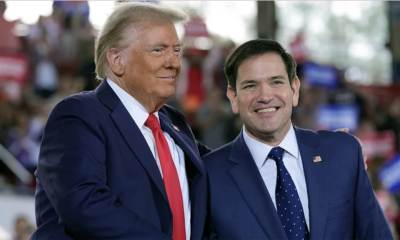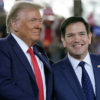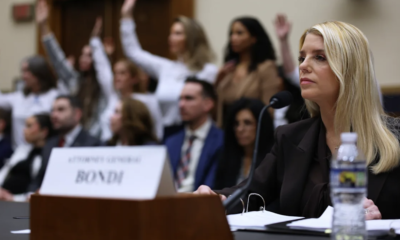Trump Presidency
U.S. to Exit UNESCO Again Under Trump, Citing ‘Woke’ Agenda and Anti-Israel Bias
In a move reigniting debates over America’s role on the global stage, President Donald Trump has announced that the United States will once again withdraw from UNESCO—the United Nations Educational, Scientific and Cultural Organization—by the end of 2026. The decision marks the third major exit by the U.S. from the international agency since it was founded in 1945, this time under the banner of resisting “woke” values and alleged anti-Israel sentiment.
According to White House deputy spokesperson Anna Kelly, “President Trump has decided to withdraw the United States from UNESCO, which supports woke, divisive cultural and social causes that are totally out-of-step with the commonsense policies that Americans voted for in November.”
The administration cited UNESCO’s support of global Sustainable Development Goals (SDGs), Diversity Equity and Inclusion (DEI) initiatives, and the organization’s 2011 decision to admit Palestine as a member state as key reasons for withdrawal. State Department spokesperson Tammy Bruce added that participation in the agency no longer aligns with the U.S.’s “national interest.”
Israel Bombs Near Roman Ruins in Tyre, Lebanon Amid Hezbollah Conflict
This decision could have wide-reaching consequences for American cultural diplomacy and scientific cooperation. UNESCO is most recognized for its designation of World Heritage Sites, including the Grand Canyon and Statue of Liberty, and for fostering international collaboration in education, communication, and cultural preservation.
UNESCO Director-General Audrey Azoulay expressed regret over the announcement, stating that “this decision contradicts the fundamental principles of multilateralism” and could negatively affect American communities that benefit from UNESCO programs. However, she also emphasized the organization’s ongoing commitment to Holocaust education and fighting anti-Semitism, rebutting claims of bias.

David Rowe’s cartoon of Donald Trump with the Statue of Liberty went viral. David Rowe
Israel, on the other hand, welcomed the move. Israeli Foreign Minister Gideon Sa’ar called it a “necessary step” and praised the U.S. for standing up against what he described as systemic anti-Israel discrimination within the UN.
The decision underscores Trump’s broader “America First” agenda, which includes scaling back involvement in international institutions perceived as undermining U.S. sovereignty or promoting progressive ideologies. His administration previously exited UNESCO in 2017, citing similar grievances, only for President Joe Biden to rejoin the organization in 2023.
Critics argue that this latest exit risks further isolating the U.S. from crucial global conversations around education, science, and cultural preservation. French President Emmanuel Macron voiced disappointment on X (formerly Twitter), writing, “The withdrawal of the United States will not weaken our commitment alongside those who lead this fight.”
Unwavering support for UNESCO, a universal guardian of science, the Ocean, education, culture, and world heritage. The withdrawal of the United States will not weaken our commitment alongside those who lead this fight.
— Emmanuel Macron (@EmmanuelMacron) July 22, 2025
With the exit scheduled for December 31, 2026, the timeline gives room for possible reversals, depending on future election outcomes. But for now, Trump’s UNESCO exit sends a loud message: multilateralism, cultural cooperation, and “woke” globalism are once again on the chopping block.










































Pingback: $250 ‘Visa Integrity Fee’ On Tourists Planning to Travel to U.S.